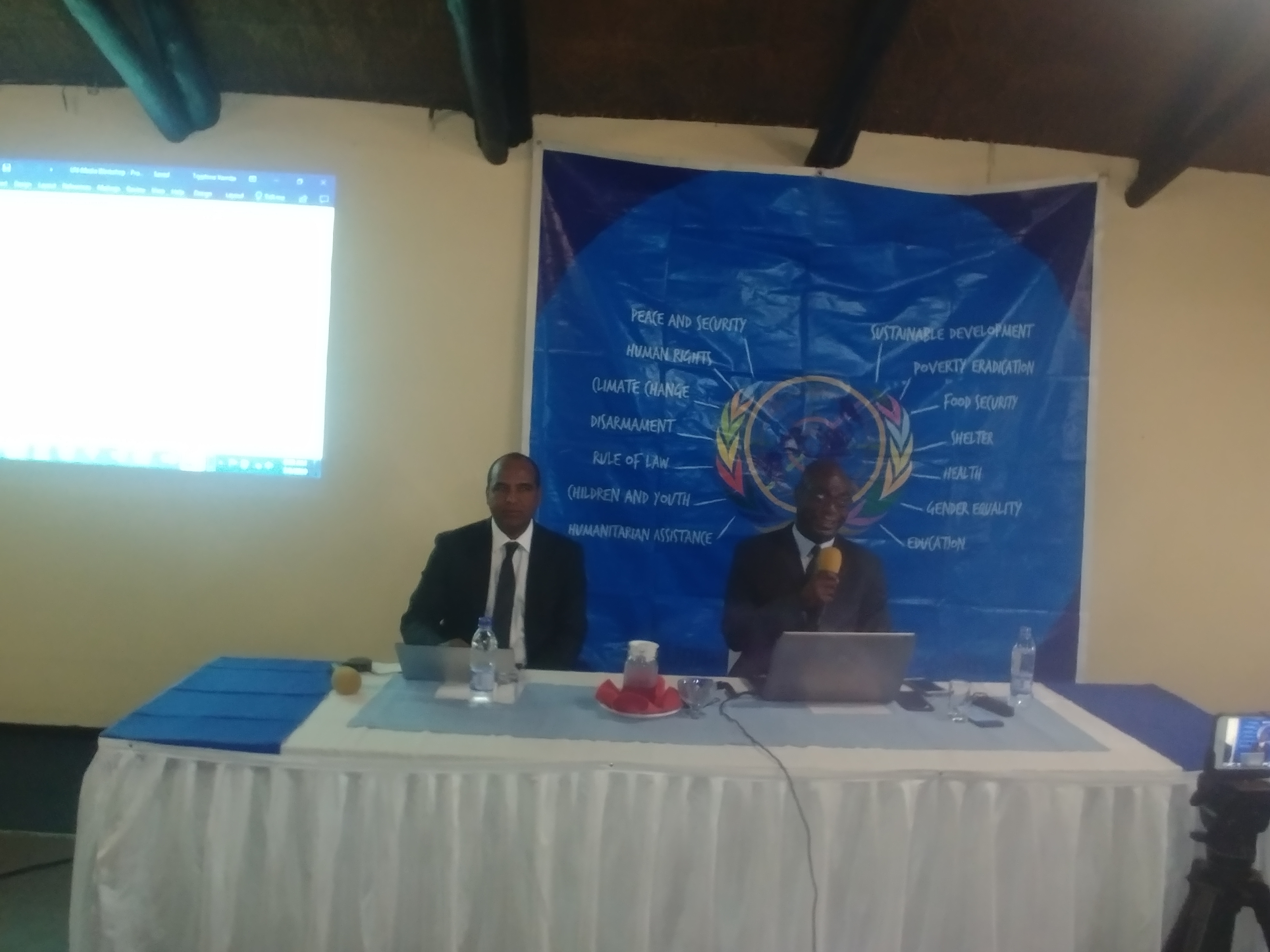Dr Major Anywhere Mutambudzi, Director of Media Services in the Ministry of Information, Publicity and Broadcasting Services has underscored the importance of the media in making the goals and aspirations of the United Nations a reality.
He made the call during a UN Media Workshop at the Great Zimbabwe Hotel running from Sunday 7 July to Wednesday 10 July 2019. Dr Mutambudzi was speaking on behalf of Permanent Secretary of the Ministry of Information, Publicity and Broadcasting Services, Mr Nick Ndabaningi Mangwana.
“We call upon the media to be objective, ethical and analytical in a progressive way as it covers the role of the United Nations. The Ministry thus urges the media to play a critical role of scouting the environment to publicise the challenges and threats facing the nation, highlight the good work done as a way of encouraging more good work, inform communities of the various interventions being done to help them to secure their buy-in as well as to make them be aware of the roles they should play if the interventions are to yield the expected outcomes.
“It is therefore imperative and pertinent that members of the media take it upon themselves to understand the various programmes being carried out by the Government of Zimbabwe and the United Nations for the good of the nation. You need to be empowered by information so that you can tell the Zimbabwean narrative in a way that reinforces and enhances the good work being done by the United Nations and other development partners in the country. The Minister of Information, Publicity and Broadcasting Services, Senator Monica Mutsvangwa, is on record for saying that we are all Zimbabweans and if we fail we fail together and if we succeed, we succeed together. You are members of the media and have professional ethics to comply with, we all understand and appreciate that, but first and foremost you are Zimbabweans. Armed with the power of the pen, we implore you to use that power for the good of our country,” Dr Mutambudzi said.
The United Nations in Zimbabwe supports the National Development Plan of Zimbabwe collectively through the Zimbabwe United Nations Development Assistance Framework (ZUNDAF). The current cycle of the ZUNDAF runs from 2016 to 2020, covering seven national development priority areas which include Good Governance for Sustainable Development; Pro-Poor Sustainable Growth and Economic Development; Food Security at Household and National Levels; Sound Management and Use of the Environment, Natural Resources and Land to Promote Sustainable Development; Access to and Utilisation of Quality Basic Social Services; Universal Access to HIV Prevention, Treatment, Care and Support, and Women’s Empowerment, Gender Equality and Equity.
Dr. Mutambudzi revealed that the Government has embarked on the process of reviewing the country’s media laws and policies to create an enabling environment for the media.
“The main objective of the media reforms is to create laws that govern your sector aligned to the Constitution and to attain international best practices. The media law and policy reform trajectory commenced with the announcement of the legislative agenda for the Ninth Parliament by the President. The legal reform process in the media included consultations with media stakeholders, drafting the new bills and policies and now is at the stage of being subjected to the national processes required to make them law.
“The good news is that the Access to Information and Protection of Privacy Act (AIPPA) is now going to be replaced by three progressive Acts, which are the Freedom of Information Bill, the Zimbabwe Media Commission Bill and the Protection of Personal Information/Data Protection Bill. For the first time, Zimbabwe will have a Media and Film Policy to guide your operations. The draft which came after the wide consultations that I alluded to earlier own has since been submitted to the Cabinet Committee for Legislation for its consideration. The United Nations family in Zimbabwe and other development partners such as the European Union were instrumental in supporting the media reform process through availing financial resources and moral support.”
He added that parallel to the media reforms, Government has the ongoing digitalisation project which is now 37 percent complete. Although progress has been hampered by the unavailability of adequate funding, he said, Government remains committed to the project. When complete, the digitalisation project will change the media landscape by improving universal access, whilst broadening the scope for plurality and diversity and guaranteeing growth of the industry, creating employment and providing quality media products to the nation.
“Let me end by saying that judging by the quality of the agenda items of the three day workshop, you will leave this place richer in mind and empowered to contribute to the well being of the nation through the United Nations programmes and works in Zimbabwe through your reportage,” Dr Mutambudzi added.
